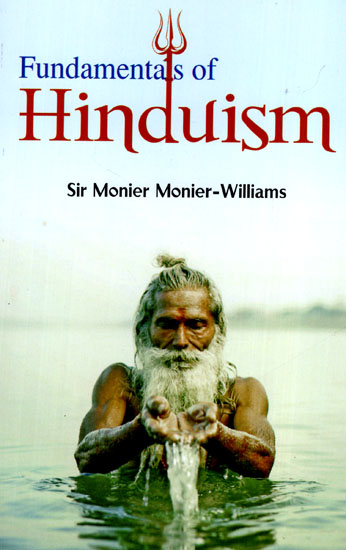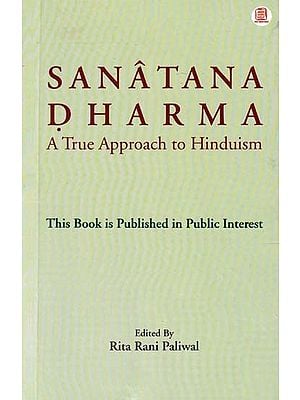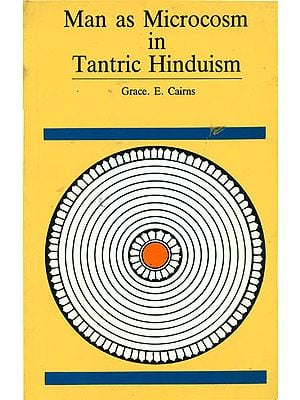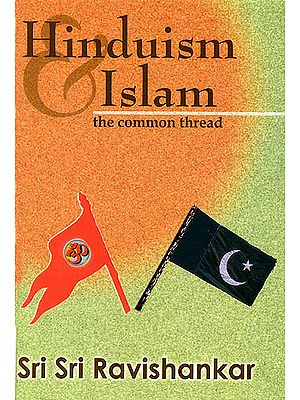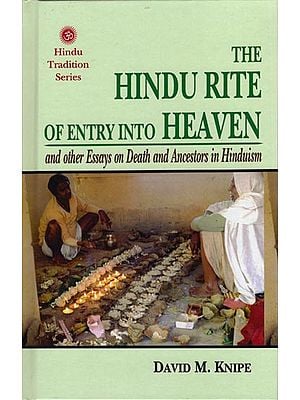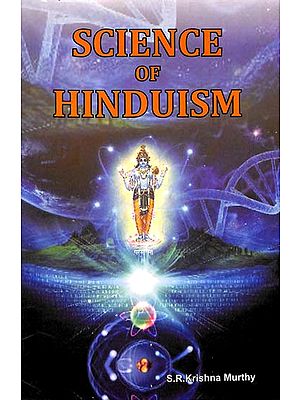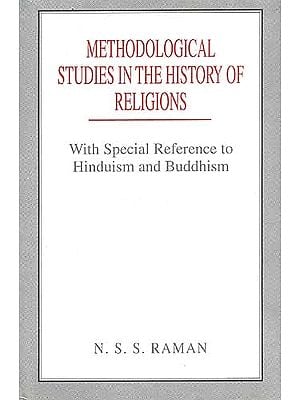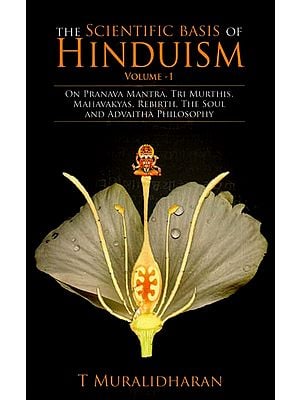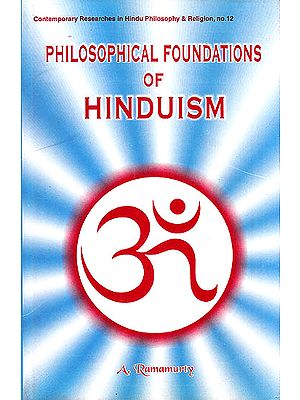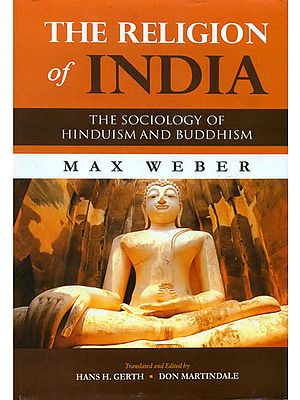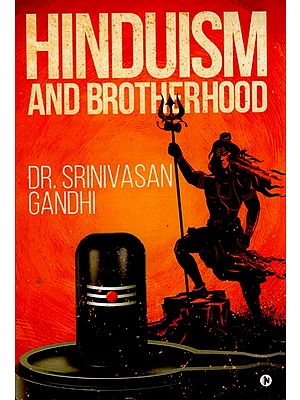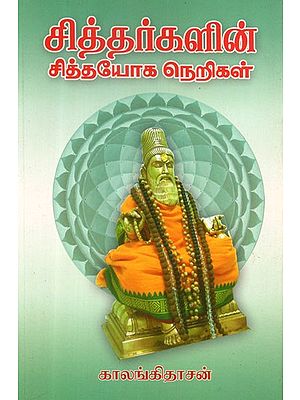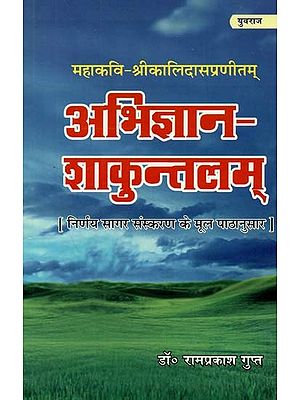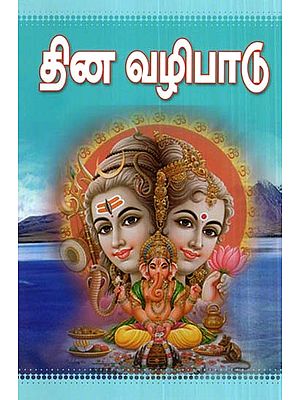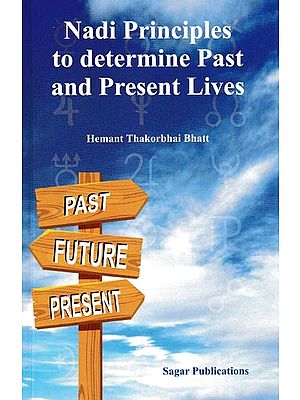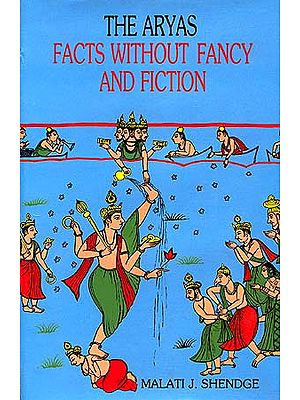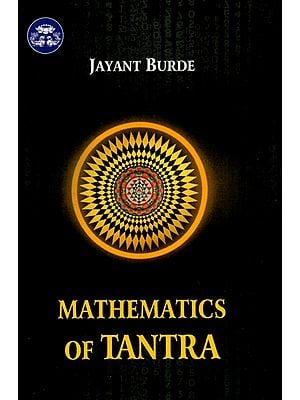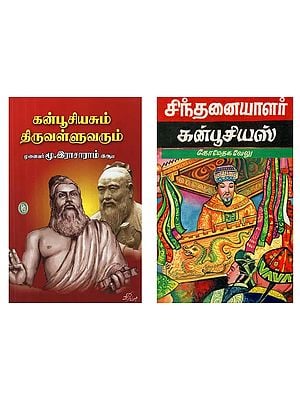Fundamentals of Hinduism
| Specifications |
| Publisher: D. K. Printworld Pvt. Ltd. | |
| Author M. Monier Williams | |
| Language: English | |
| Pages: 214 | |
| Cover: PAPERBACK | |
| 8.50 X 5.50 inch | |
| Weight 290 gm | |
| Edition: 2012 | |
| ISBN: 9788124606070 | |
| NAV832 |
| Delivery and Return Policies |
| Ships in 1-3 days | |
| Returns and Exchanges accepted within 7 days | |
| Free Delivery |
The book is one of the earliest authoritative works on the fundamental nature of Hinduism, authored by a noted Western scholar, Sir Monier Monier-Williams. The scholarly work deals with the fundamental aspects of Hinduism: the nature of its beliefs, philosophy and practice. It provides precious details on the principal works of Hinduism: the Vedas, the Upanisads and the Dharmagastras. It discusses the essence of the Vedic hymns, the Brahmarias and the sacrificial system, the Upanisadic philosophy, the doctrine of triple manifestations, and the development of sectarian beliefs — Saivism, Vaisnavism and later Saktism. The in-depth study delves objectively into the major concepts and doctrines associated with Hinduism, such as, the doctrine of incarnation, doctrine of devotion and idol-worship as well as the caste system. It presents a discussion on the famous places held sacred by the Hindus which are the major centres of pilgrimage: the city of Benares, Allahabad, Gaya, Nashik and Haridwar, among others.
Sir Monier Monier-Williams (b. 1819-1899) in his earlier career taught Asian languages at the East India Company College, and delved deep into the cultural heritage of India, its religious practices in vogue, including modern Hinduism. His aims being practical rather than speculative and his vast practical knowledge of India and her people, earned him the professorship of the Boden Chair of Sanskrit at Oxford University where he studied, documented and taught Asian languages and also compiled one of the most widely used Sanskrit-English dictionaries. In 1883, he also founded the Indian Institute at Oxford University that provided a perfect training ground for studies focused on Indology.
**Contents and Sample Pages**
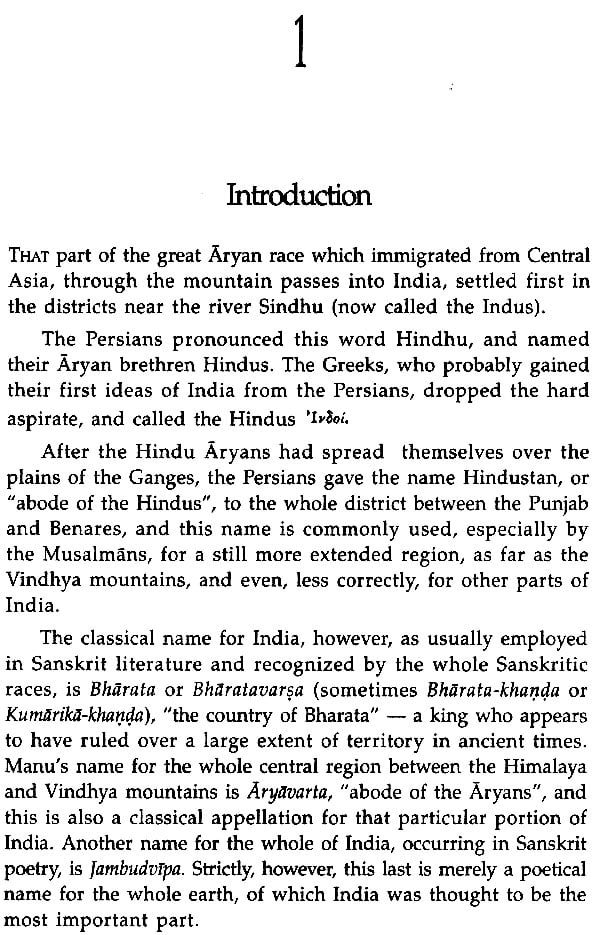

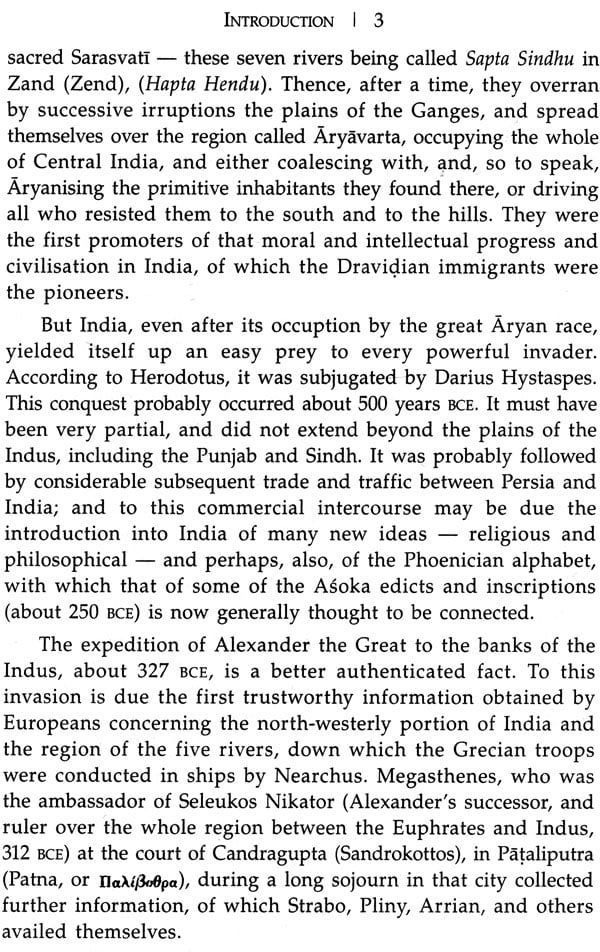

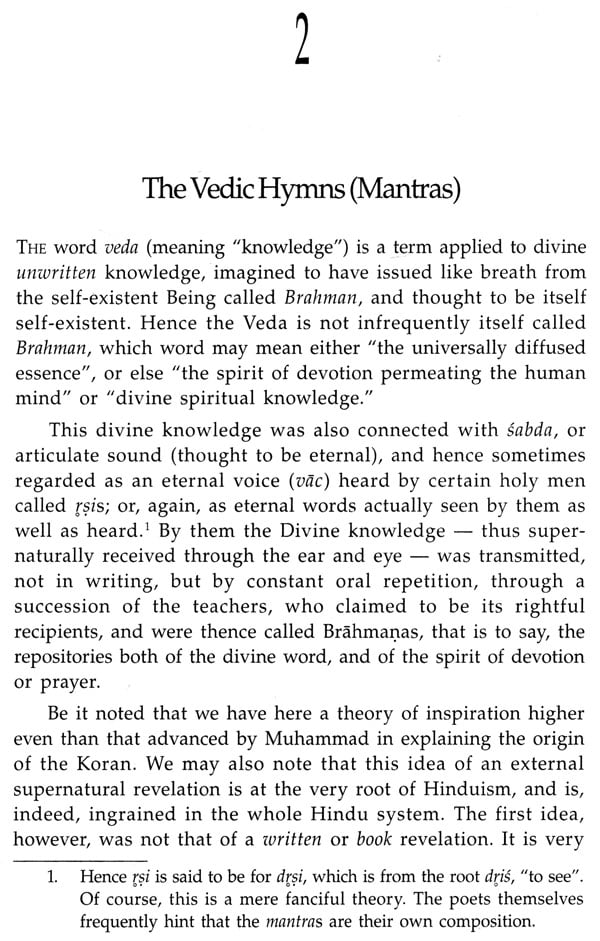
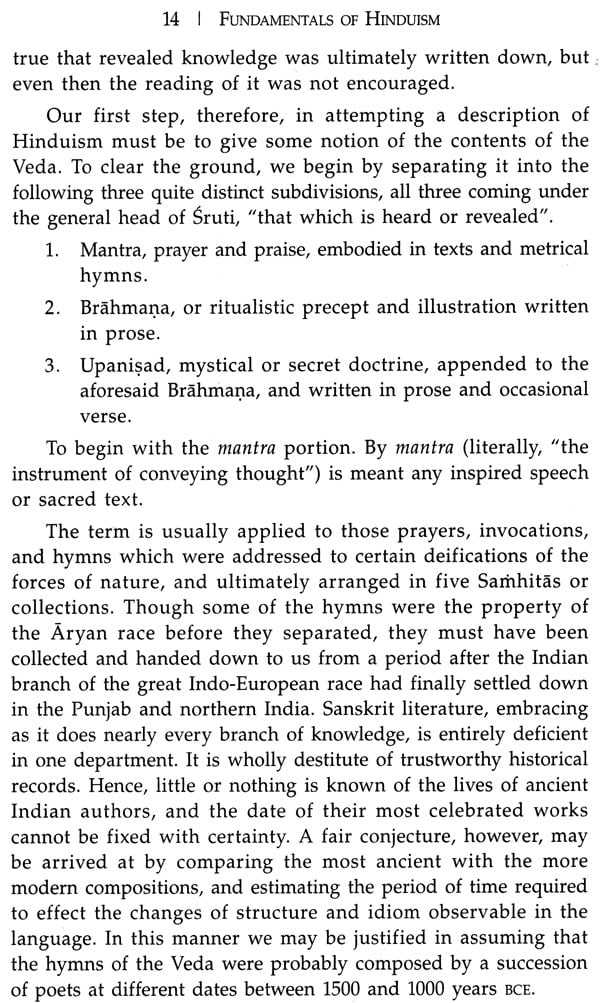
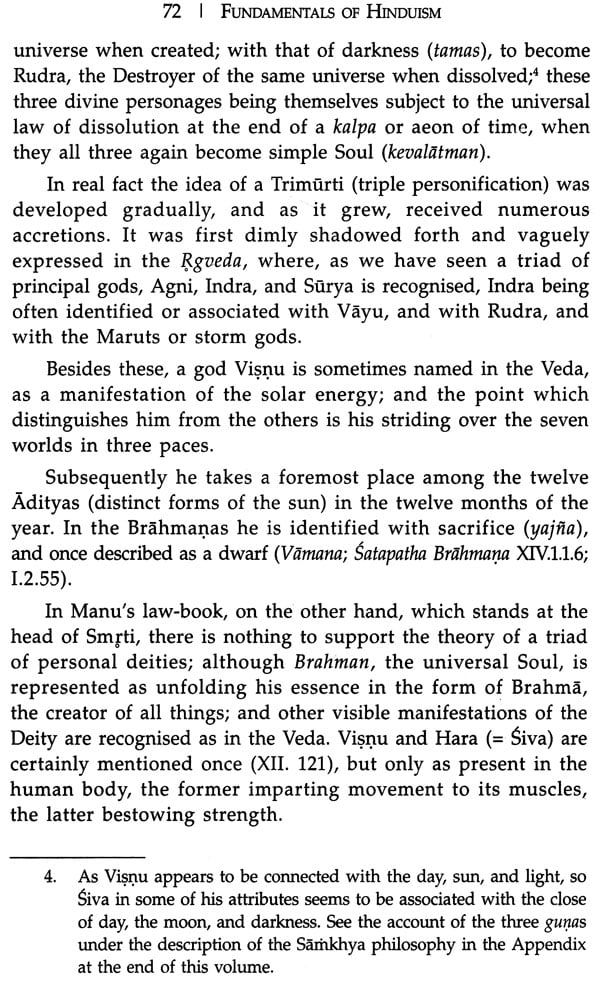
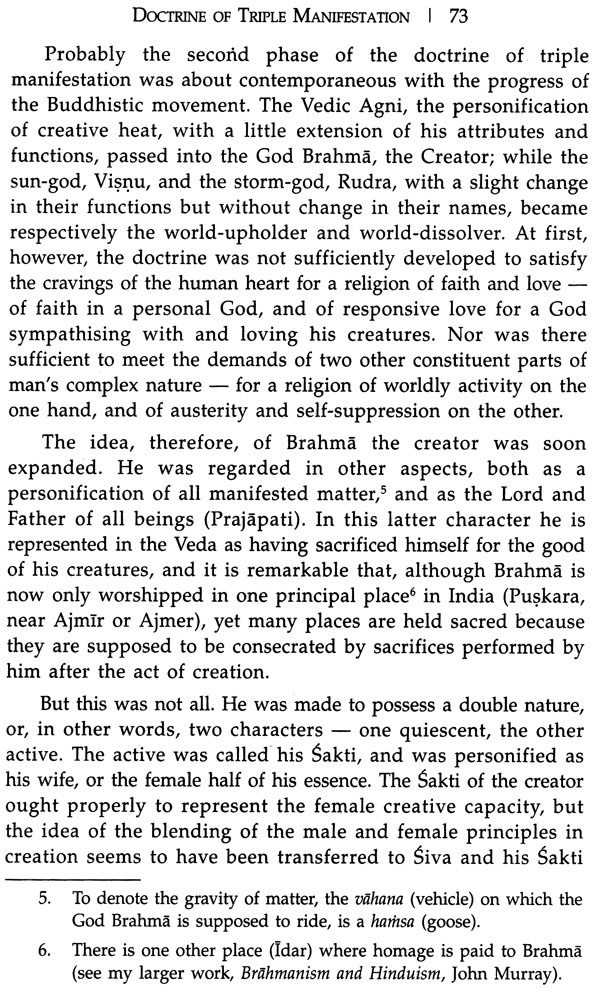
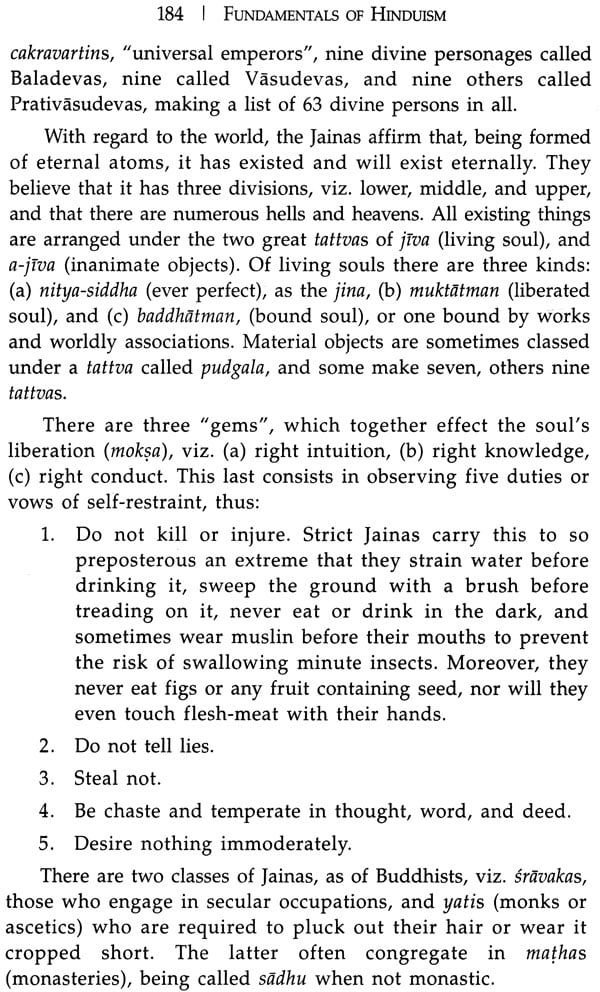
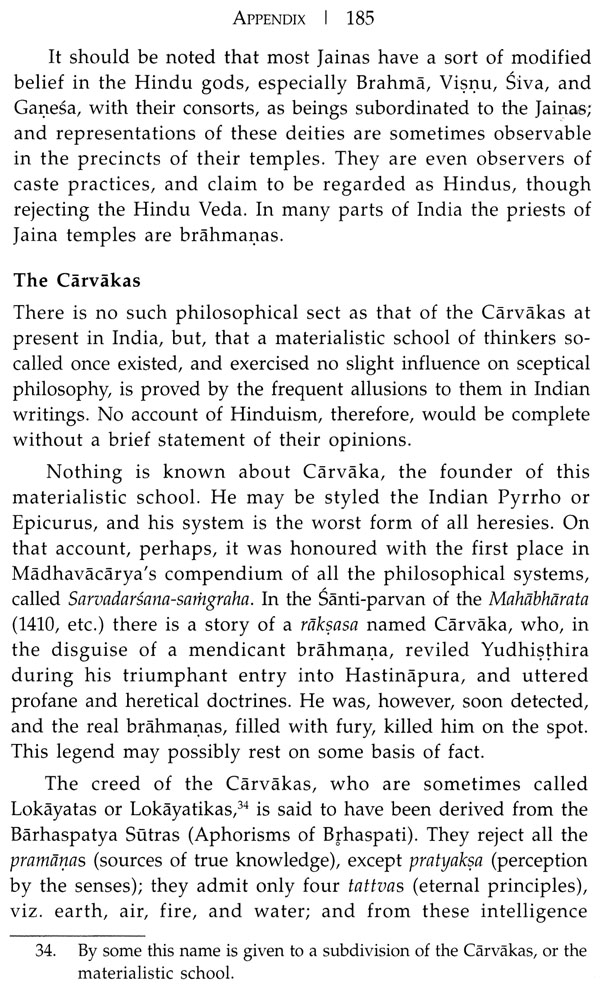
-
Q. What locations do you deliver to ?A. Exotic India delivers orders to all countries having diplomatic relations with India.
-
Q. Do you offer free shipping ?A. Exotic India offers free shipping on all orders of value of $30 USD or more.
-
Q. Can I return the book?A. All returns must be postmarked within seven (7) days of the delivery date. All returned items must be in new and unused condition, with all original tags and labels attached. To know more please view our return policy
-
Q. Do you offer express shipping ?A. Yes, we do have a chargeable express shipping facility available. You can select express shipping while checking out on the website.
-
Q. I accidentally entered wrong delivery address, can I change the address ?A. Delivery addresses can only be changed only incase the order has not been shipped yet. Incase of an address change, you can reach us at help@exoticindia.com
-
Q. How do I track my order ?A. You can track your orders simply entering your order number through here or through your past orders if you are signed in on the website.
-
Q. How can I cancel an order ?A. An order can only be cancelled if it has not been shipped. To cancel an order, kindly reach out to us through help@exoticindia.com.











